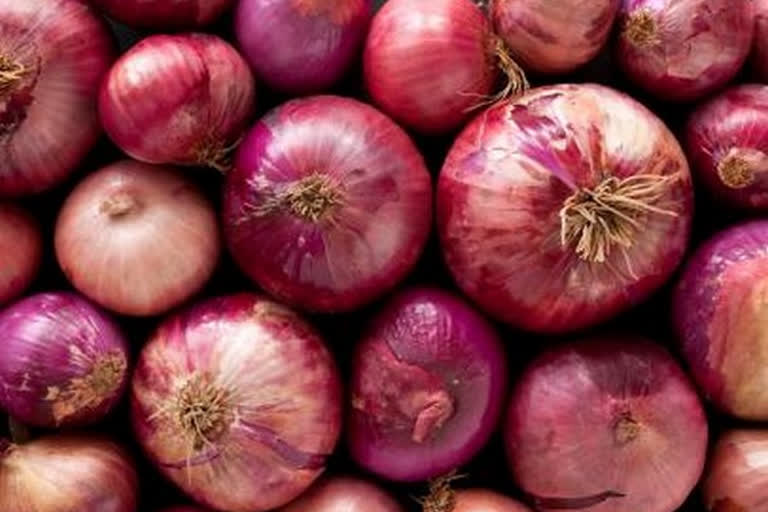New Delhi: The Centre on Thursday said unseasonal rains could have "minor" impact on the kharif onion output, but ruled out possibility of price rise in coming weeks as it has enough buffer stock to make up for shortfall. Speaking to PTI, Consumer Affairs Secretary Rohit Kumar Singh said not only onion, prices of pulses are expected to remain stable till December.
"Prices of onion and pulses will not rise till December because we have enough buffer stock available with us," he said. Asked about the impact of unseasonal rains on the production and prices of onion and pulses grown in the kharif season of this year, the Secretary said: "...There might have been minor impact on the kharif onion production. But we will adequately compensate with the buffer stock." He said only 45 per cent of onion production comes from kharif (summer) season and the rest 65 per cent in the rabi (winter) season of this year.
Otherwise, onion prices have been fairly stable this year because of record production in the rabi season of the 2021-22 crop year as well as 2.5 lakh tonnes of buffer stock. "We have procured adequate quantity of stocks through Nafed. They are lying with us and we are infusing them in the market as per the requirement," he said. Onion from the buffer stock is being offloaded depending on the prices in the local geographies. "Wherever the prices are above the national average, we tend to supply out there. We are hoping that till December there is nothing to worry on onion end," he added.
Around 54,000 tonnes of onion has been released across 14 states and Union Territories from the national buffer stock so far. This has resulted in stable onion prices all through the year. Further, to keep the onion retail prices stable, the government of India has offered onion to all the states/UTs and Mother Dairy, Safal, NCCF and Kendriya Bhandar to lift onion from Central Buffer Stock at the rate of Rs 800 per quintal. In case of pulses, the secretary said all pulses combined, the government has a stock of 43.82 lakh tonnes, which is more than enough for the market to be stable. The secretary further said the government is watching the the price situation very closely on a daily basis.
The moment the government sees a tendency of hoarding or having an excess stocks with traders, "we use the provisions of the Essential Commodities Act both at the Centre and state level to make sure that the stocks flow into the market to cool down the prices", he said. "For example, when we saw tur prices on a rising trend in August, we did not impose stock limits but we did impose stock declaration and it worked. We saw prices started plateauing because traders know they cannot speculate and hoard," he said. Earlier in a press conference, the secretary said about 54,000 tonnes of onion from the buffer stock has already been offloaded in 14 states and Union Territories, which has resulted in stablising onion prices all through the year.
In fact, the all-India average retail price of onion has witnessed a significant decline of 28 per cent compared to last year, he said. Further, to keep the onion retail prices stable, the Centre has offered onion to all state governments and other private and cooperative bodies such as Mother Dairy, Safal, NCCF and Kendriya Bhandar to lift onion from the central buffer stock at the rate of Rs 800 per quintal.
In case of pulses, the all India average retail prices of major pulses have been fairly stable since starting of the year, except for normal seasonal price increases. Prices of gram and masoor dals have slightly declined over last month, whereas the rates of tur, urad and moong dals have been stable with marginal increase over the same period, he added. (PTI)



